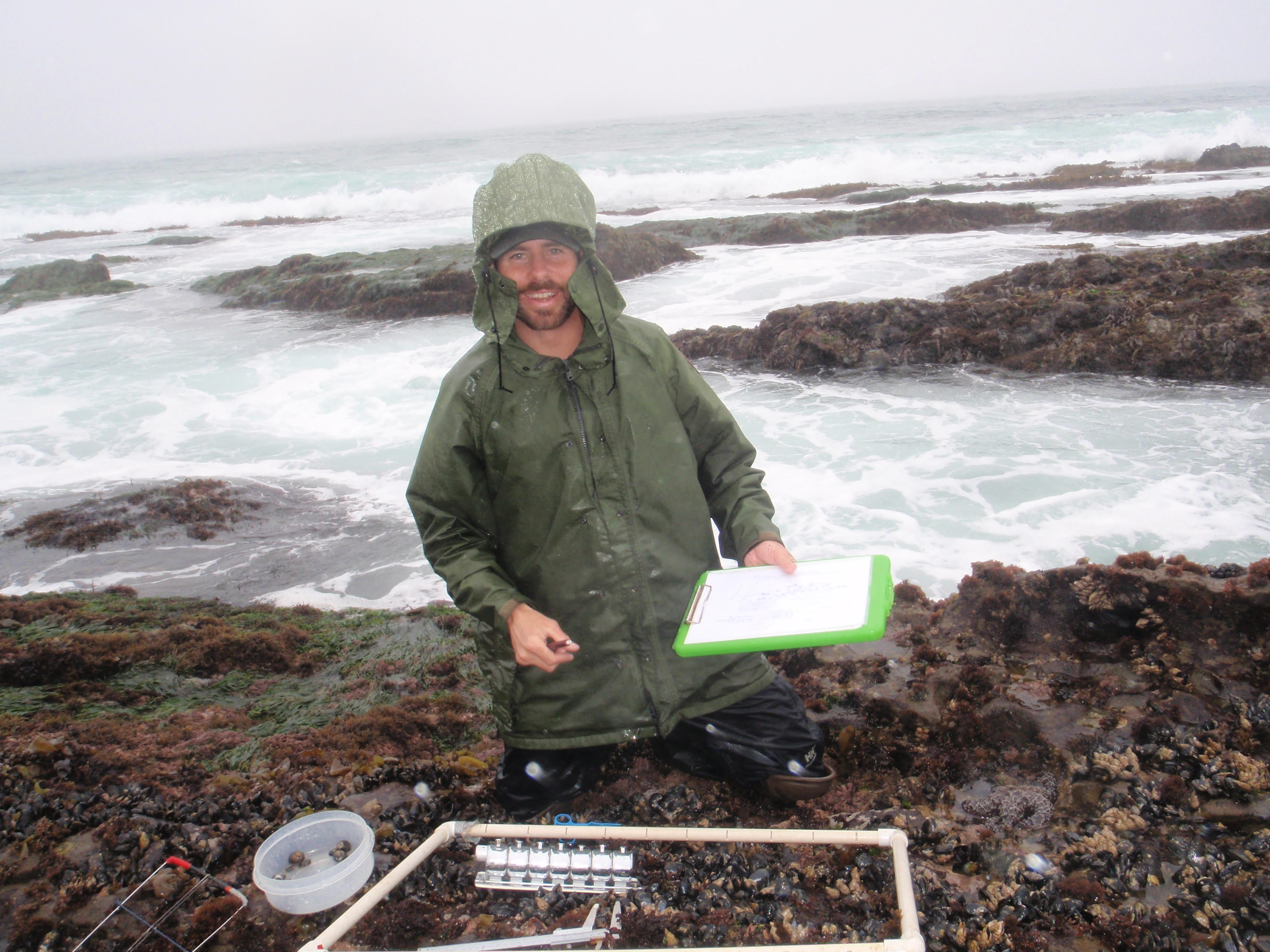Assessing Decline and Recovery of Rocky Intertidal Foundation Species Using Long-Term Data

PHD DISSERTATION DEFENSE
Advisors: Steve Gaines, Robert Miller
Committee: Hunter Lenihan
ABSTRACT
Rocky intertidal ecosystems have been significantly degraded. Of particular concern is the decline of rockweeds. As foundation species, rockweeds increase biodiversity by decreasing environmental stress under their canopy. To determine the status of the dominant rockweed species in southern California, Silvetia compressa, I analyzed canopy cover data from 30 sites spanning 18 years. I found that the rockweed had declined markedly at sites south of Point Conception. Analyses revealed that substantial declines in Silvetia cover were associated with strong, offshore Santa Ana wind events. To assess the recovery of disturbed rocky intertidal ecosystems, I analyzed 28 years of data from a controlled disturbance experiment at a remote site. I found the recolonization rates for species cleared to be highly variable ranging from years to decades, and that even relatively mild disturbances can have long-lasting effects on rockweeds. Since rockweeds have sustained extensive degeneration worldwide, and recovery of impacted rockweed populations is typically slow and unpredictable, I propose that rockweeds are optimal candidates for restoration. In my third chapter, I summarize the current knowledge of rockweed ecology, highlighting studies that could inform restoration practices, and recommend ways to improve our ability to implement scalable restoration of rockweeds and accompanying ecosystem-wide benefits.
BIO
Stephen has been studying coastal ecosystems in southern California for over twenty years. As a marine ecologist at Channel Islands National Park, Stephen monitors the shoreline ecosystems at the islands including the rocky intertidal and sand beaches. For his master’s thesis, he investigated factors affecting restoration success for the intertidal rockweed alga, Silvetia compressa. In 2018, Stephen returned to graduate school to pursue a doctoral degree at the University of California, Santa Barbara investigating the patterns and long-term trends in the abundance and distribution of foundational species on rocky shores, including Silvetia. Rockweeds are vital to rocky intertidal ecosystems, providing habitat and food for a diverse community. Monitoring data has documented substantial declines in rockweed populations, and the algae have completely disappeared at some sites. Concurrently while working and schooling, Stephen is collaborating with colleagues from multiple institutions on a large-scale project to restore rockweeds across California.